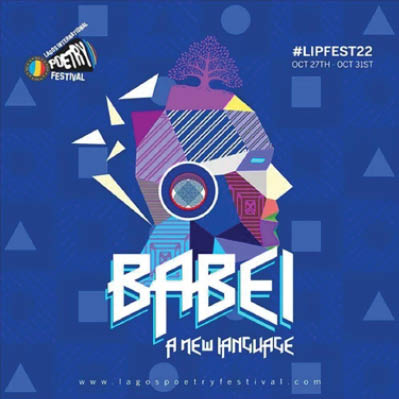Lagos International Poetry Festival holds October
The 2022 edition of the Lagos International Poetry Festival starts October 27. The festival themed, “Babel… A New Language,” will end on October 2022. The festival brings together poets, writers, artists, and thinkers from across the world to Lagos for a week of conversations, readings, performances, workshops, and adventure. Founded in 2015 by poet Efe Paul […]

LIPFEST 2022
The 2022 edition of the Lagos International Poetry Festival starts October 27. The festival themed, “Babel… A New Language,” will end on October 2022.
The festival brings together poets, writers, artists, and thinkers from across the world to Lagos for a week of conversations, readings, performances, workshops, and adventure. Founded in 2015 by poet Efe Paul Azino, it has established itself as one of the continent’s annual art and culture highlights.
Why baby head is unique to my art – Brice Esso
‘Promotion of young artists critical to our environment’
The organisers said the 2022 edition of the festival “draws an array of guest poets, writers, translators, and performers, as they translate their experiences by taking us beneath the skin of their tongues. Watch out for conversations, performances, workshops, and parties with offerings from across Nigeria, Ghana, Kenya, South Africa, the US, England, Scotland, Australia, India, Belgium, Germany, Canada, and Spain.”
They said in a statement that, “This year we consider how the technology of language underscores our sense of identity and facilitates our understanding of the relational universe. Entire generations of people across the world have had their contributions to scientific advancement and intellectual engagement precluded by the power dynamic that subordinates language for language, blurring encoded histories and bodies of knowledge in the process. And so, this year we centre the mother-tongue and the ongoing reclamation of default languages from the rubble of colonialism, interrogating the implication of a re-imagination of language in local education, and the possibilities presented for the liberation of stories and societies.”
